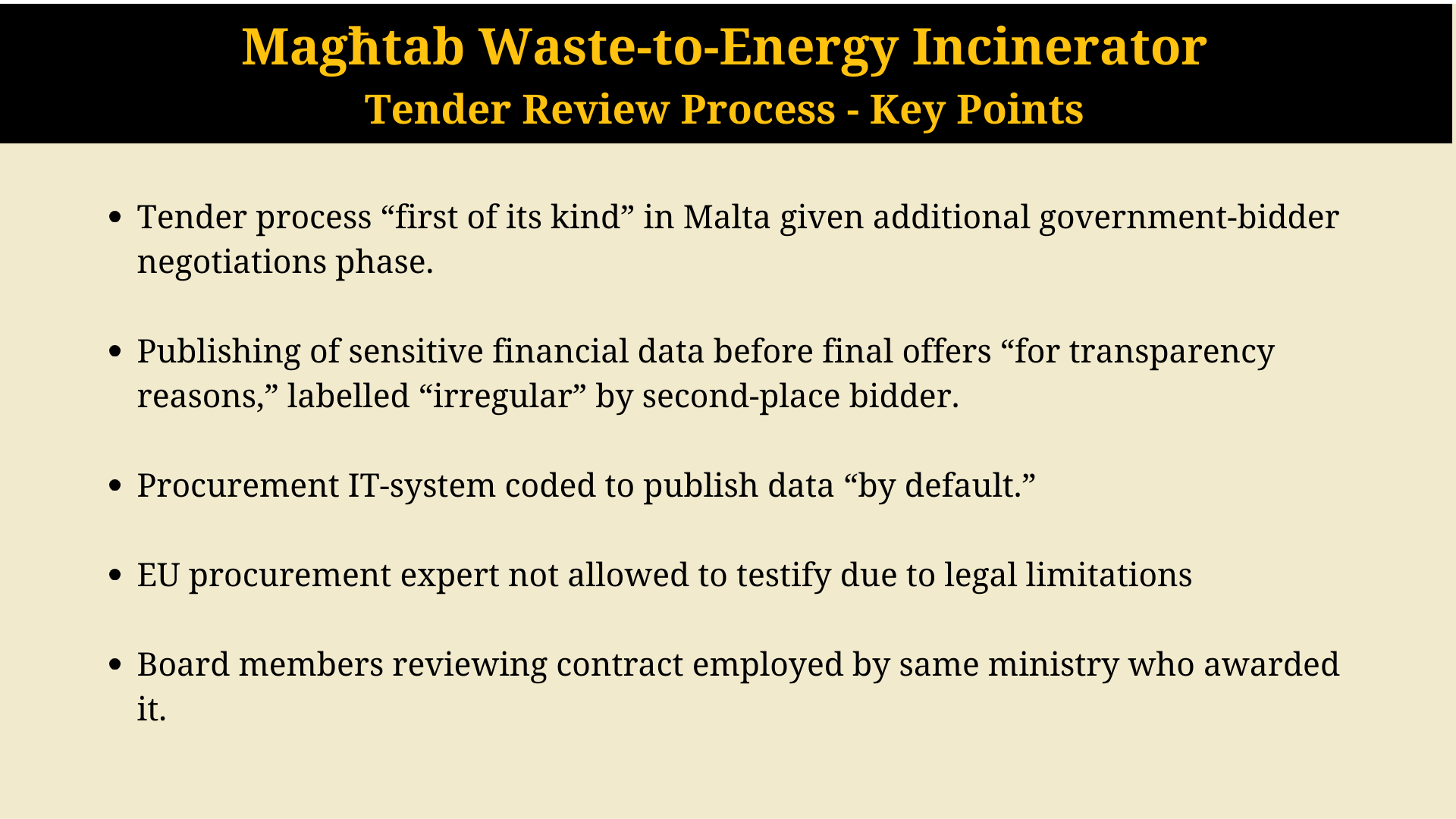
This week’s close scrutiny of a €600 million contract for the construction of an energy-generating incinerator in Magħtab, the longest case ever held in front of the Public Contracts Review Board (PCRB), revealed the government’s lack of experience with projects of its size, value, and scope.
The tender contract, awarded to a consortium comprising local construction company Bonnici Bros and French waste management company Paprec, is one of the largest in Malta’s history. It involved a tendering process which included negotiations with the bidders, another first for the country.
Eyebrows were first raised during the tendering process, contracted by Wasteserv and handled by the Department of Contracts, when the latter authority published bidders’ sensitive financial information before negotiations had ended.
The move, labelled “a mistake”, fuelled claims of backdoor deals for a preferred bidder to win, given Bonnici Bros’ close ties to Prime Minister Robert Abela.
Following a three-part tendering process, which led to the contract award to the French-Maltese consortium, the second place bidder, Hitachi Zosen – Terna, challenged the results.
Hitachi is one of the oldest multinationals specialising in waste-to-energy projects worldwide, while Bonnici Bros has no relevant experience.
In its challenge, which led to the case being heard in front of the Public Contracts Review Board (PCRB), Hitachi, through legal counsel Adrian Delia and Matthew Paris, said the “irregular” publishing of bidders’ financial offers before the completion of negotiations “has the effect of distorting competition and preventing a fair process.”
The former director general at the Department of Contracts, Anthony Cachia, appointed as a witness for the case, claimed the data was published intentionally “for transparency reasons”.
If unresolved at the PCRB level, the case could progress to court.
The PCRB hearings
So far, two sittings at the PCRB premises in Floriana have been held, constituting what one board member said would be the longest case heard by the board.
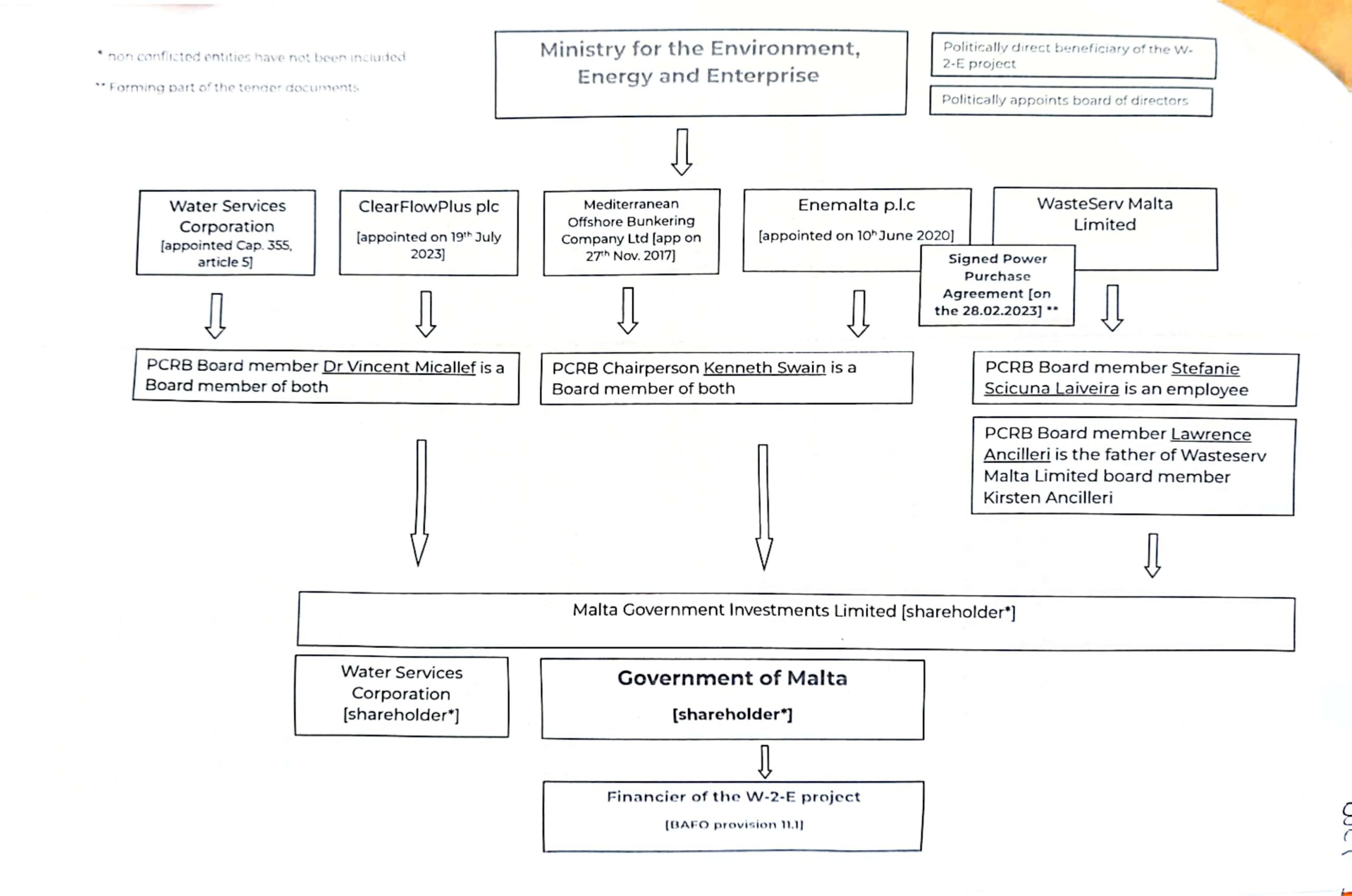
Part of the court application submitted by Hitachi to the board asked for the recusal of its chairman and another member over claimed conflicts of interest.
Among delays and protracted recesses where journalists and stakeholders were left out in the rain due to limited and cramped space at the PCRB premises in Floriana, Wednesday’s hearing saw Hitachi calling for the recusal of two sitting board members due to claimed conflicts of interest.
According to an application submitted to the board within the first few minutes of the hearing’s start, the conflict existed since Chairman Kenneth Swain and member Vincent Micallef are also board members of companies managed by the environment ministry, which awarded the incinerator contract.
After a lengthy deliberation, the board members announced they would not be recusing themselves and called for the proceedings to continue, only for a second grievance with the board raised by Hitachi.
Through Delia, they complained that another PCRB member not forming part of this particular hearing’s board, Stefanie Scicluna Laiviera, had also sat on Wasteserv’s tender evaluating committee.
Wednesday’s hearing lasted from 9am to 7pm and continued on Friday with another all-day session.
An expert witness hailing from the Greek IT systems supplier Eurodyn, which set up the ePPS procurement system for the Maltese government, told the board heard it was set up to publish the data by default, given all previous tendering processing did not involve negotiation periods.
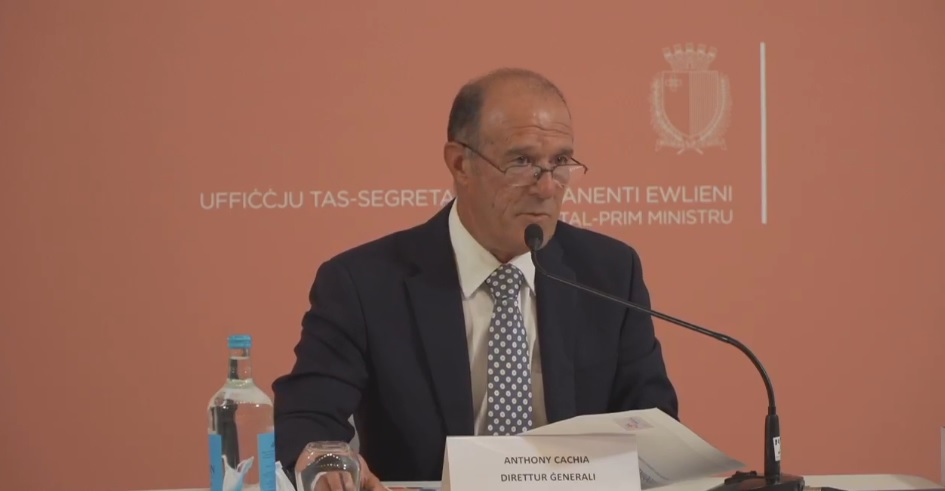
Former Director General at the Department of Contracts, Anthony Cachia.
Following hours of delays, Cachia, the former director general at the Department of Contracts, testified it was published “for transparency reasons,” as the prices were “to act as a basis for negotiations.”
Asked whether it was customary to publish such sensitive data, revealing the hands of competitors at such a crucial time, Cachia said, “This is the first competitive procedure to be adopted with a negotiations cycle, so you can’t say what is normal and what is not normal.”
Cachia was also asked about the approval of Stefanie Scicluna Laviera for the evaluation committee, given her role on the PCRB board. He shrugged off concerns about her appointment and said he “did not see a conflict of interest with Ms Scicluna Laiviera.”
Hitachi planned to call another witness to the stand, Albert Sanchez-Graells, an economics and procurement law expert who was expected to testify about how procurement procedures with negotiations are undertaken abroad.
But Wasteserv’s legal counsel, Antoine Cremona, objected, and Sanchez-Graells was not allowed to testify. Cremona argued that EU and local legal experts could not be used as expert witnesses, preventing the board from hearing his testimony.
Further sessions are expected, given the lengthiness, number of witnesses and complexity of the case.
The tendering process
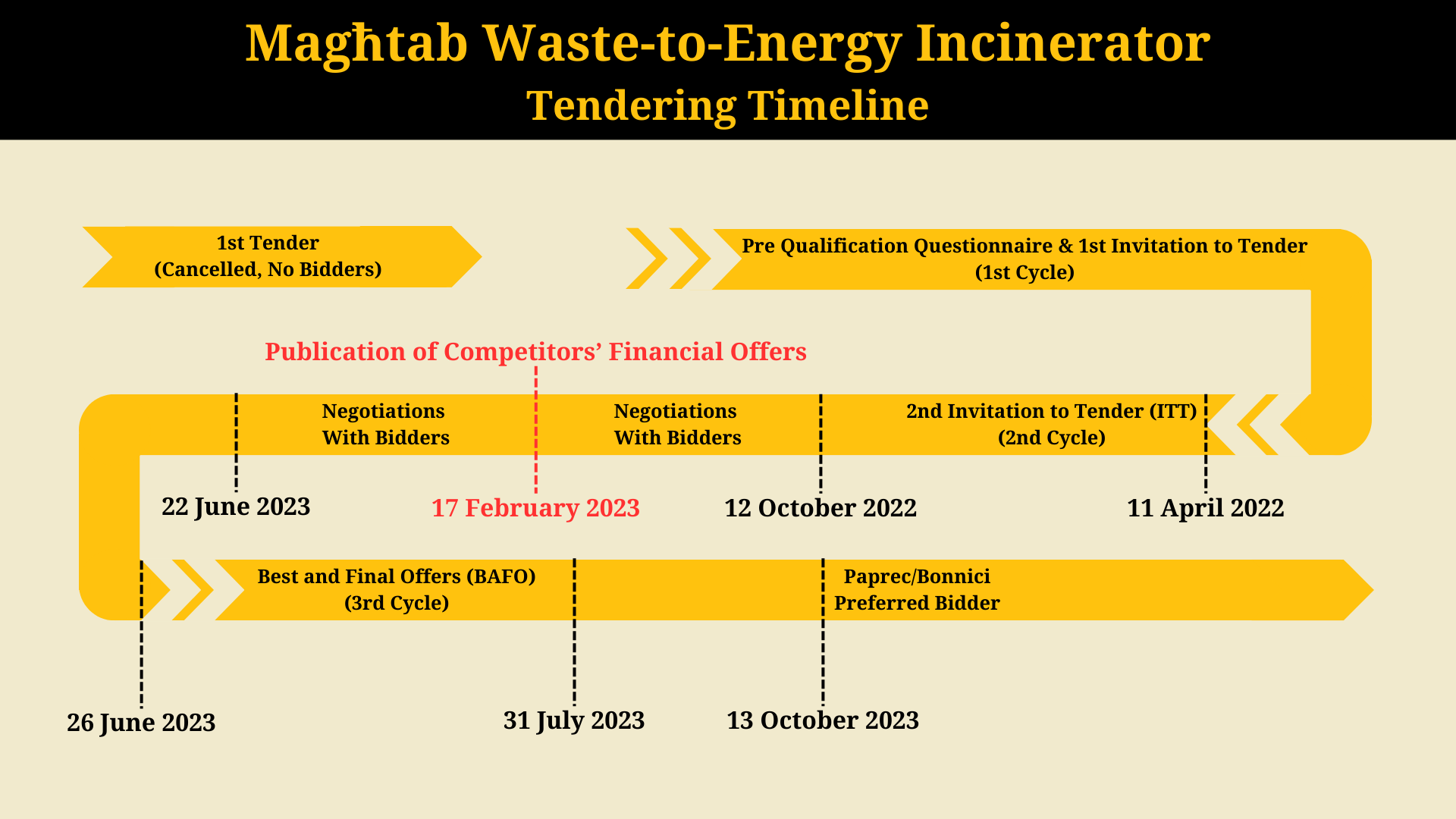
The first-of-its-kind tendering process for the project included the publication of bidders’ sensitive financial data in the middle of the negotiations phase.
The tendering process for the waste-to-energy incinerator was the first of its kind for Malta, given it included a period of negotiations between the government and the bidders not typically found in other tender processes.
The board heard how decisions on who was to sit on the evaluating committee, which parts of the data were published and when to do so were taken internally by Wasteserv and the Department of Contracts.
Cachia testified, “It’s always the contracting authority [Wasteserv] that chooses the evaluation committee.”
The committee comprised Wasteserv CFO Jonathan Scerri, Charlon Buttigieg (who replaced Stephen Dimech), Branicca Xuereb, and Stefanie Scicluna Laviera. Additionally, consultancy COWI was appointed as technical adviser and UK consultancy Frith as observer.
The procurement process for the project, one of the largest ever undertaken by the government, included three cycles. An initial pre-qualification questionnaire (PQQ) and an invitation to tender (ITT) were followed by a second ITT along with competitive dialogue and negotiations. The BAFO stage capped the tendering process.
At the BAFO stage and following the publication of the financial data, the Paprec/Bonnici consortium revised an earlier indicative price it had submitted, making its offer the most competitive.
The Paprec/Bonnici consortium was later awarded the tender.

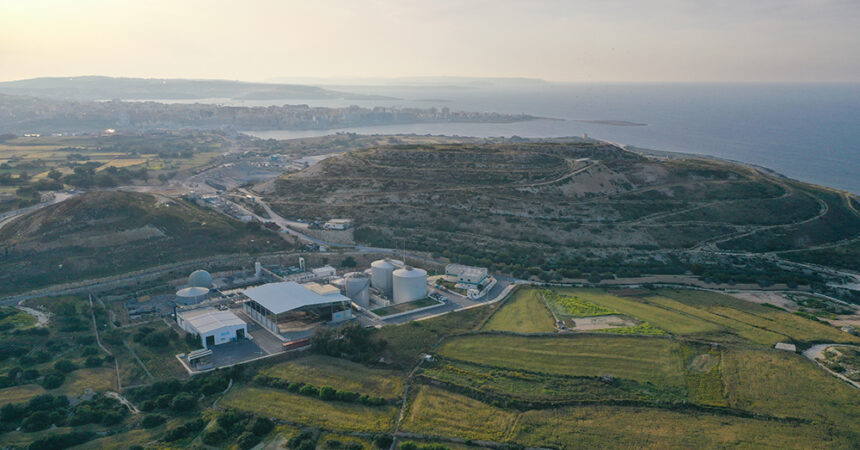











What a disgusting country Malta has become.
What is this that an interested party objects to an expert witness brought up by the other party , and the witness is withdrawn? If this is the legal practice , this is as close as being a dictatorship .
Please sign the petition here to stop the building of this medical and general waste incinerator that will provide cancerous fumes to 80% of Malta’s population given prevailing winds in Malta re NW:
https://www.parlament.mt/en/petition/?id=213&page=1&numItems=10
Try to make it right here
https://www.parlament.mt/en/petition/?id=213&page=1&numItems=10